Welcome to Flash Pulp, episode four hundred and thirty-six.
 Tonight we present The Glorious: Dancing Dust
Tonight we present The Glorious: Dancing Dust
[audio:http://traffic.libsyn.com/skinner/FlashPulp436.mp3]Download MP3
(RSS / iTunes)
This week’s episodes are brought to you by Gatecast!
Flash Pulp is an experiment in broadcasting fresh pulp stories in the modern age – three to ten minutes of fiction brought to you Monday, Wednesday and Friday evenings.
Tonight, we hear a tale of music and murder from the halls of Valhalla.
The Glorious: Dancing Dust
Written by J.R.D. Skinner
Art and Narration by Opopanax
and Audio produced by Jessica May
Though there was no true end to Valhalla’s horizon, Leroy “Cutter” Jenkins had found himself at the western border of the day’s battle. The walls were cement and stripped bare by some ancient fire, and Cutter thought it likely he was hiding in a snippet of battlefront from some crumbling Eastern European warzone.
Though the rooftops were alive with snipers, these lower middle floors, offering no view and little tactical advantage, had been left to gather dust in the lingering afternoon light.
As he shuffled through the cupboards in search of any hidden discovery that might bring some novelty to his never-ending cycle of war and death, he became certain of an unfamiliar rhythm throbbing at the edge of hearing.
This was not the rolling explosion of tank fire or landing artillery, nor the staccato of a heavy machine gun pinning down one of the day’s defeated. It was not the drum and fife of the marching, and it was not the chop of helicopter blades overhead.
His ears had been so long drowned in the sounds of combat that it took his mind a full minute to comprehend the noise, and in so doing he was so surprised at its source that he spoke aloud to no one.
“I’ll be damned if that isn’t rock and roll,” he told a box of cereal whose thick-charactered label he could not read.
In seconds he’d entered the hallway with the look of a starving man stumbling towards a supermarket. There, however, he righted himself. The crack of a high powered rifle rolled through the shattered windows, and a half century of undying conflict sent his limbs into well-practiced maneuvers.
At this more cautious pace, he pushed on.
It took him ten minutes to find the door – one floor up, one apartment over. If he had been in any other position he might not have heard it, and now, as he considered the dark peep hole centered in the blank wooden face of the entry, the volume dipped noticeably.
Was the entrance booby trapped? Was the whole thing a clever ploy to lure wanderers into an improvised explosive? Perhaps pushing through would set off a chain of detonations that would slide the whole building onto its nearby companion.
Yet, with a sigh, Leroy settled on the notion that it was not his first death, and that he could not reasonably hope that it would be his last.
He knocked – though after he moved to the leftmost side of the opening.
It was Jenkins’ expectation that he would receive gunfire as a response, and, judging by the music’s sudden stoppage and the whispering that followed, it was a long moment before he could be sure it wouldn’t be the answer those inside chose. Finally, however, the entrance cracked enough to allow the barrel of an AK-47 to make an appearance in the otherwise silent hallway.
“Name’s Leroy,” he said. “Sorry to interrupt, but I noticed your music while raiding the cupboards upstairs. First song I’ve heard in years that wasn’t pushing me to march somewhere or attack something. I – in my time we had something called Saturday night Rock ‘n’ Roll, you know?”
He was running out of words to speak into the weapon’s mouth, and the suspicion that he had made a regrettable choice had begun to climb his spine, when the barrier swung wide.
There were two women inside, their hair black and their eyes brown.
“I am Leylo, and this is my wife, Feynuus,” said the nearest, the assault rifle in her hands steady and unerringly aimed at his chest. She wore a loose collection of flowing cloths whose mix of dark purples and deep blacks stood in sharp contrast to her companion’s bright yellows and scarlet reds.
They seemed intent on reading his reaction to the welcome, and it was then that Jenkins deployed perhaps the reflex he had found most essential to survival in the endless churn of Valhalla: He smiled.
Though Leylo hesitated, Feynuus was quick to return the gesture, and, before her defender might say otherwise, the woman turned and lifted a circular slab of plastic to an electronic mouth open and waiting between a pair of speakers.
While the compact disc was something slightly ahead of his time of death, the unaging marine knew Saturday Night Rock ‘n’ Roll when he heard it.
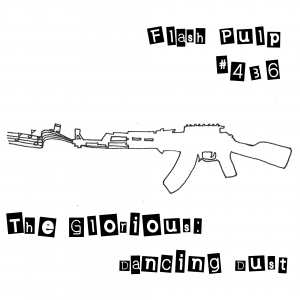 The waning afternoon light broke across the balcony and landed on the ugly green rug that dominated the living room. The legless couch and a pair of worn high-backed chairs had been pushed aside, to provide plenty of dance floor, and the sun seemed to luxuriate at having the full run of the space.
The waning afternoon light broke across the balcony and landed on the ugly green rug that dominated the living room. The legless couch and a pair of worn high-backed chairs had been pushed aside, to provide plenty of dance floor, and the sun seemed to luxuriate at having the full run of the space.
Leroy had known such ugly carpets in his time – had dug his socked feet into a few with the woman who would become his wife – and so it was that everything foreign felt somehow familiar.
Closing the door, Leylo lowered her weapon and moved to Feynuus’ side. Her finger danced across the volume knob, and the music dipped low enough to allow for conversation.
Cutter, however, knew that his best chance came at leading that discussion.
“None of the units I’ve been through had electricity,” he said.
“When we first arrived we spent months hunting for working batteries,” replied Feynuus. “These actually come from a slice of Kuwait an hours walk to the east.”
“It was clearly worth your efforts,’ replied Jenkins, his head bobbing to the beat, and they again exchanged smiles. “Did you know each other before your deaths? I mean, were you married before you arrived?”
“Yes,” said Leylo, but nothing more.
Decades of experience had left Leroy with the knowledge that his next question could go as badly as ending his day of living, being asked to leave, or being frowned at for being rude. It had also often been, however, the key to a understanding a new friend.
In a place where no victory mattered, no wound lasted, and no loot followed you into the great dining halls once the crows cawed, such bonds were all he had found that might last.
“I’ve heard the stories of many of the dead here, but it’s rare for a married couple to arrive together. How did it happen?”
Leylo frowned, and her knuckles found a tighter grip on her rifle, but it was Feynuus who spoke.
“I – I was married once before. Asad was a fisherman, and we carved an unhappy existence by the sea. He had little interest in me, and I had none in him, but it was what was expected and I was raised to keep my head covered and my eyes down.
“When I was but eighteen, Asad gave his life to the waves. A storm took him, and his brothers, and I was abandoned with nothing more than a hut and a hungry belly. Praise all the powers that I did not also have a child to starve at my side.
“Though I felt little love for my dead husband, there were few positions worse for a woman, in the town in which I was raised, than that of a widow. Those who were married wanted no reminder of tragedy, and those who were not had no interest in what they considered a failed and tainted bride.
“There were few who might visit, and, once the condolences ceased, fewer still who might consider me friend.
“I was left to fade away in an empty home, with an ancient CD player and a ragtag collection of discs that only served to remind me of a dead man. My days were spent in search of food, and my nights were spent in silent loneliness – that is, until my cousin, distantly departed to South Africa, sent on a small package. She’d heard of my position, and recalled my love of dance, and so had sent on some music she thought I might enjoy.
“Drums and flute and guitar all achieved something exciting of a sort I had not heard before, but I knew too that such music would not land on friendly ears in such a proper place, so it was that I listened only alone and after dark, with all doors and windows buttoned tight.”
Finally Leylo let slip a reluctant smile.
“That is how I found her,” she said, “sweating from the heat of dance and a shut up house. I had never married, and was never afraid to speak my opinion, and this was too much weighing against me to be considered a member of the community – and yet I persisted.
“By day I fished alone while laughing at the idea that it was a man’s work, and by night I sought the one who might join me in sharing my small, but earned, life.
“It was a coincidence of having grounded my boat further down the surf than normal, and having to walk through the shadows cast by her forlorn cage. I have long loved afrobeat, but thought myself the only soul in town with the ears for it. Perhaps it was the solitary hours upon the waves, knowing I would go unmourned if I were to follow the likes of Asad beneath the waves, but that leak of rhythm I heard escaping from her enclosed balloon was enough to draw me to knock on a stranger’s home.”
Feynuus giggled and set a hand on her lover’s arm.
“I was not a stranger, we had grown up on the beach together, but never, I admit, as more than acquaintances.”
“Whatever the case,” answered Leylo, her fingers settling over those of her wife, “I knocked. I knocked, and we danced, and I went home at dawn thinking I had very rarely had so much fun.
“I worked hard not to think of her shimmies and shakes while exhaustedly casting my nets the next day, but my fatigue was no resistance to the float and fluff of her bright gliding fabrics. I returned the following day, and danced until I literally asked for but a moment to sit down, and fell asleep, shabbily, in the corner.”
The fingers entwined.
“That was the first night you slept over.”
“It would not be the last. Yet – well, a love such as ours was greatly frowned upon. I spent a month resisting her lips, and it was as I departed one dawn, in search of my own bed and then to cast out my tiny craft, that she pushed the door shut as I opened it.”
“To our minds,” said Feynuus, her attention on Leroy’s face as he leaned into the dusty apartment’s warming sun, “we were married from that day on.”
Cutter only nodded. He’d heard of a thousand rituals meaning the same thing since his arrival in Valhalla, and held no rites as lesser than his own.
“I moved in then, relocating the meager inheritance of useless hunting weapons and harvest tools left me by my father,” continued Leylo, “and we were happy for a time – yet soon the complaints began. First the whispers about our music, and then the whispers about our ways, and then the stones hurled through our windows.”
Feynuus nodded. “The warmth and passion that had always been missing with Asad burst forth from my heart, and I found it truly difficult to keep hidden. Yet, even my small joys seemed a hook to their eyes.
“To their minds, worse than a widow was a happy widow, and even more contemptible than a happy widow was a woman who realized she was no widow at all.
“On a Tuesday I attempted to purchase eggs from a neighbour, and found my meal lobbed at me with much cursing. On a Thursday the same man, a childhood friend of Asad’s, caught me out in the market and took to replacing his chicken’s spawn with rocks from under foot.
“I was quick to retreat, but my eye was greatly swollen from a glancing blow. Leylo was little impressed when she returned. She worked hard to better my mood, but my feet had no strength that eve, and I spent a tearful night in her arms.
“The next morning she rose before I did, and sought out Asad’s chum to have words. I’m sure she taught him some new ones, then she headed again to sea.
“Likely her barbs sat ill with the fool all day, as, when evening fell, he knocked upon our door – and he was not alone. The crowd, no longer content to whisper, pulled me from the home they had previously coaxed me into, and dragged me through the dirt I had once shared with the corpse I could not love.
“There were speeches, and proclamations, and threats – all, I can see now, intended not as a warning or lesson to myself, but simply as a righteous intoxicant to work themselves up to what they saw as the traditional solution – the only solution – for errant women such as myself.
“With the sun setting at my back, and the dust before me dancing in reds and yellows under the churn of the mob’s feet, the first stone flew.
“Then the music began.
“It seemed strange, then, to hear it so loud. It had always been a secret shared between us, meant to be kept low and in the dark, and yet here the drums rolled forth across the yard, and, as if under the influence of the keyboard and guitar’s fury, the door peeled wide.
“There was my love, Leylo, holding her father’s otherwise useless inheritance.
“The weapon had not been fired in years, but she knew its working – and the gathered murderers shortly did as well.
“She was not the only one who had come armed, however, and within seconds the air filled with gravel and metal flying from hands and weapons on both sides. I did my best to return as much of the earth as found me, but it was no good.”
Cutter had experience enough to know that even awakening in the Halls of the Glorious could not soften the memory of a traveller’s death, and he took a moment to inspect the balcony as the pair moved into an embrace.
“A tough situation,” he said, his words bouncing from the closed door.
“Aren’t they all,” Feynuus finally answered, her weapon forgotten at her side, “but I take some small comfort in having to spend an eternity with my wife,”
“- and without a single one of those bastards in sight,” finished Leylo with a chuckle.
Outside, the eternal staccato of combat continued, but inside, sweating from exertion and warmth, the trio heard only the thrum of their shared dance until the ravens called them to feast.
Flash Pulp is presented by http://skinner.fm, and is released under the Creative Commons Attribution-Noncommercial 3.0 Unported License.
Intro and outro work provided by Jay Langejans of The New Fiction Writers podcast.
Freesound.org credits:
Text and audio commentaries can be sent to comments@flashpulp.com – but be aware that it may appear in the FlashCast.
– and thanks to you, for reading. If you enjoyed the story, tell your friends.
Tonight we present Biggest Fan

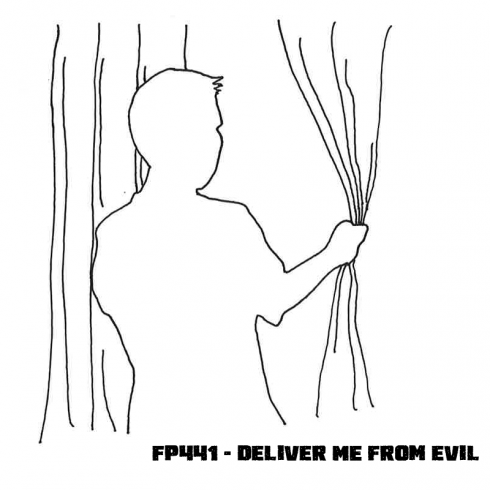
 The Viceroy was well distracted by a tale of his own hunting prowess when, as dusk fell across the dunes, a second sighting was made. On this occasion it was Ida’s stiff finger that brought the crook-handed strangers to their attention. At a dozen points the sands shifted, then hunters appeared from beneath the shields they’d used as a dust-covered roof to obscure their hiding holes. Their stalking spiders – no smaller than the hounds Esperon herself had preferred in the years when she’d been forced to pursue her own bear meat – took up a position of menace.
The Viceroy was well distracted by a tale of his own hunting prowess when, as dusk fell across the dunes, a second sighting was made. On this occasion it was Ida’s stiff finger that brought the crook-handed strangers to their attention. At a dozen points the sands shifted, then hunters appeared from beneath the shields they’d used as a dust-covered roof to obscure their hiding holes. Their stalking spiders – no smaller than the hounds Esperon herself had preferred in the years when she’d been forced to pursue her own bear meat – took up a position of menace.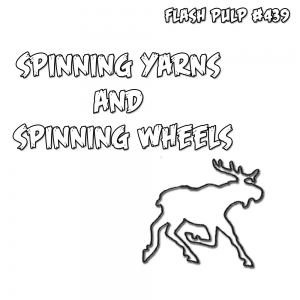 Then the passage retracted, and the door sprung back into place.
Then the passage retracted, and the door sprung back into place. The waning afternoon light broke across the balcony and landed on the ugly green rug that dominated the living room. The legless couch and a pair of worn high-backed chairs had been pushed aside, to provide plenty of dance floor, and the sun seemed to luxuriate at having the full run of the space.
The waning afternoon light broke across the balcony and landed on the ugly green rug that dominated the living room. The legless couch and a pair of worn high-backed chairs had been pushed aside, to provide plenty of dance floor, and the sun seemed to luxuriate at having the full run of the space.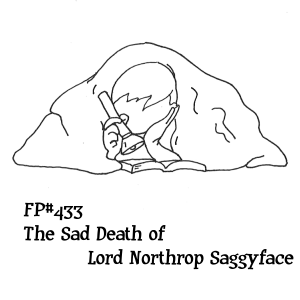 Though his mother had done away with most of the traces of his father about the house, she’d set aside a stack of ancient horror comics, noting that they were actually intended to be the child’s by way of grandfather.
Though his mother had done away with most of the traces of his father about the house, she’d set aside a stack of ancient horror comics, noting that they were actually intended to be the child’s by way of grandfather.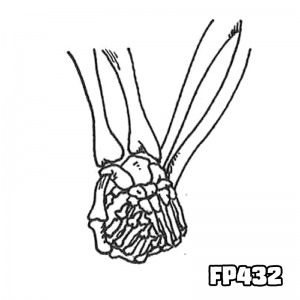 “The machines, on the other hand, didn’t know or care if anyone had survived. There were still tiny European cars idling away as we passed, and I feel confident they gladly did so until their fuel ran dry. On that same note, there’s no reason at all for an organization like the BBC to have live-to-air audio chopping and dropping. Clearly someone, likely someone who had no idea what they were doing, was messing with the controls.”
“The machines, on the other hand, didn’t know or care if anyone had survived. There were still tiny European cars idling away as we passed, and I feel confident they gladly did so until their fuel ran dry. On that same note, there’s no reason at all for an organization like the BBC to have live-to-air audio chopping and dropping. Clearly someone, likely someone who had no idea what they were doing, was messing with the controls.”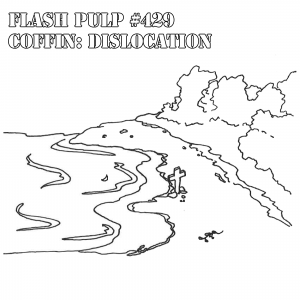 “Indifference? Typical,” said Greta. “I told you this place had warped her. Even in death she does not care about her parents. So ungrateful – so, so: So American.”
“Indifference? Typical,” said Greta. “I told you this place had warped her. Even in death she does not care about her parents. So ungrateful – so, so: So American.” It was like I was invisible.
It was like I was invisible. Bruno hit his tia, slapped her across the cheek, really, and my Tito gave him some of the same. I can’t imagine there was much force behind his stick arms, but the thug got back in his truck and took off.
Bruno hit his tia, slapped her across the cheek, really, and my Tito gave him some of the same. I can’t imagine there was much force behind his stick arms, but the thug got back in his truck and took off.